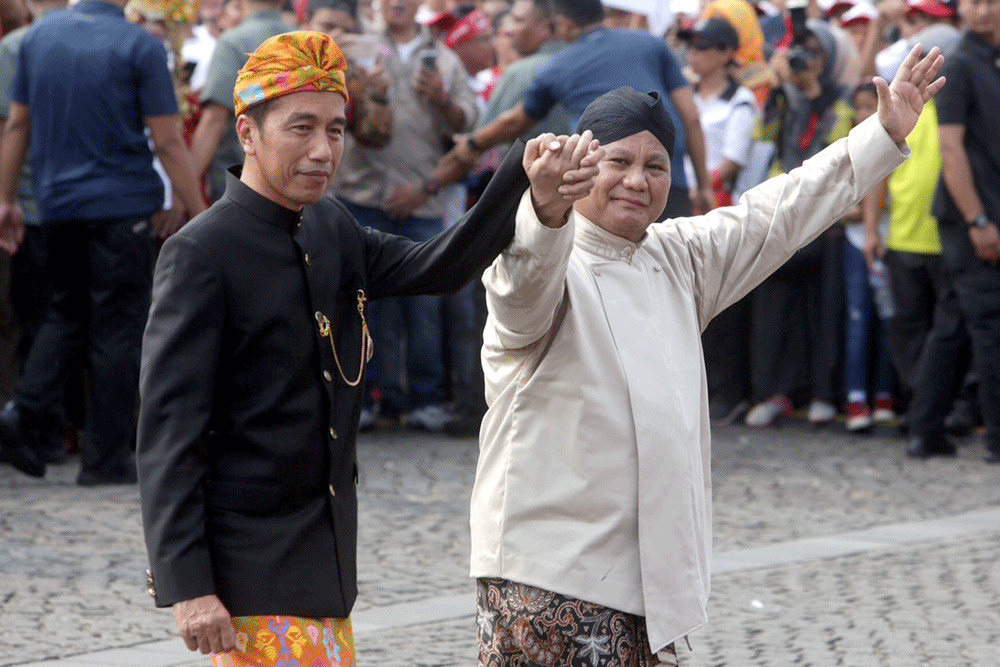Popular Reads
Top Results
Can't find what you're looking for?
View all search resultsPopular Reads
Top Results
Can't find what you're looking for?
View all search resultsThe more, the merrier
The two-horse race has done more harm than good in Indonesia, not only because of the stark divide it creates but also because it offers limited choices to voters.
Change text size
Gift Premium Articles
to Anyone
T
he next presidential election is less than two years away, but the trauma of the divisive political contests of 2014 and 2019 has lingered for many. The animosity between supporters of the winning and losing candidates has hardly been settled, especially on social media, which seems uniquely adept at fueling discord.
Hopes are high that another bitterly contested two-horse race can be avoided, not because the presidential election will be held on Valentine’s Day in 2024 but because of the changing political landscape. As President Joko “Jokowi” Widodo ends his second and final term, the ruling coalition seems set to dissolve, allowing combinations of its constituent parties to take their own shots at the nation’s highest office.
The Indonesian Democratic Party of Struggle (PDI-P), to which Jokowi belongs, is well poised to maintain its grip on power and is the only party so far that is eligible to nominate a presidential candidate. PDI-P chairwoman Megawati Soekarnoputri is reportedly insisting on handing the ticket to her daughter, House of Representatives speaker Puan Maharani.
The problem is that Puan is notably unpopular with voters. Public opinion polls have consistently favored Central Java Governor Ganjar Pranowo, a fellow PDI-P politician; Gerindra Party chairman and Defense Minister Prabowo Subianto; and Jakarta Governor Anies Baswedan.
If the PDI-P pushes for Puan’s candidacy, Gerindra looks set to nominate Prabowo for the third time in a row. There have been speculations that the two big parties will join forces in 2024, as they did in 2009. Unfortunately for popular but less established presidential hopefuls like Ganjar and Anies, they will have to make deals with political party oligarchs to build viable candidacies.
The rules of the electoral game are that political parties or coalitions of political parties may nominate presidential candidates if they hold at least 20 percent of the seats in the House of Representatives or won 25 percent of the popular vote in the last election.
This means elections should generally feature three or four candidates, with the top two going to a runoff if no one wins a majority in the first round of voting. But in 2014 and 2019, the political elites chose to split into two camps from the start, resulting in a long, energy-sapping duel.
When the dust settled, the political elites were quick to call for reconciliation, but the wounds inflicted on grassroots supporters continued to fester. The two-horse race has done more harm than good in Indonesia, not only because of the stark divide it creates but also because it offers a limited, binary choice to voters.
The recent formation of the United Indonesia Coalition, consisting of the Golkar Party, the United Development Party (PPP) and the National Mandate Party (PAN) has opened up the possibility that the 2024 election will showcase more than two presidential candidates. More alliances should follow to allow more contenders to vie for presidency.
As elections in the country have long been called “fiestas of democracy”, the more candidates, the merrier.










